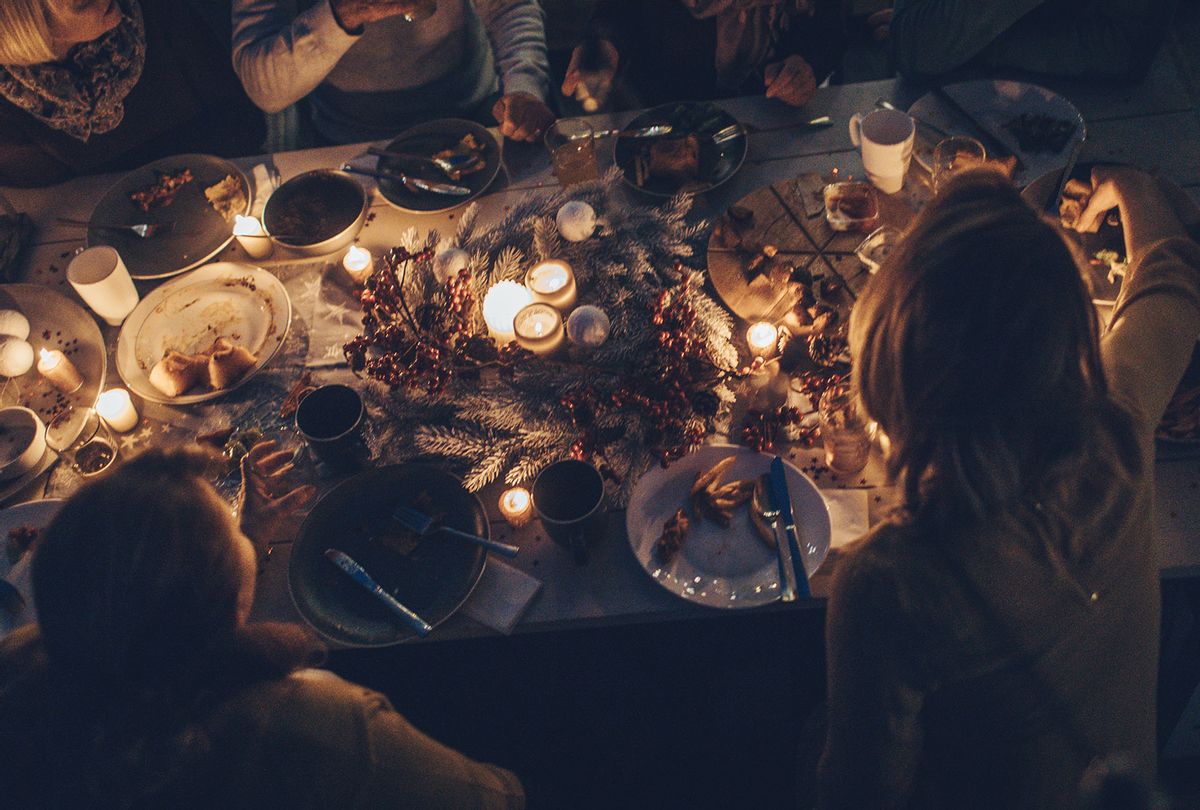


As the holiday season approaches, Americans face a new layer of unease in gathering with family: political divides are sharp, especially after a tumultuous election cycle. For many, the anxiety isn’t just about who will make the mashed potatoes but how to navigate dinner conversations without feeling like they’re compromising their morals. At Share Our America, an initiative to help communities rebuild trust and reduce polarization, we know a thing or two about gathering with grace, and this season, we offer a roadmap for bringing that spirit into your own homes.
A few years ago, I sat at a picnic table in Chadron, Nebraska, watching an exchange that captured this essence of respectful dialogue we strive toward at Share Our America. Across from each other sat two women: a Holocaust survivor from New York and a conservative Christian from rural Nebraska. They were discussing abortion, a topic they approached from very different perspectives and political beliefs. But rather than arguing, they asked each other questions. They listened. No one stormed off, and neither tried to change the other’s mind. Instead, they walked away with a deeper understanding of why someone on “the other side” might think differently. That moment showed me the power of dialogue—not to change minds but to build connection and respect.
Of course, close family connections have much higher stakes than two strangers at a picnic table, especially when loved ones hold views that feel hard—even painful—to understand. For some, the best choice may be to step back from gatherings altogether this year, and that’s okay. But for those who want to approach the season with an open mind and open heart, seeking moments of genuine connection with family and friends, consider incorporating some of the practices proven to work best. These tools can help ease difficult conversations and, in turn, allow us to leave a gathering feeling a bit closer, rather than further apart.
We need your help to stay independent
The prospect of “graceful gatherings” may feel daunting or even dangerous, especially when loved ones hold views that feel threatening to our rights or well-being. Starting with the people who are more likely to respond kindly or beginning with a less-charged topic is a way to foster important connections while prioritizing your needs. And always remember, you don’t have to do this alone: involving other allied family members, therapists, or community mediators can help make these conversations safer and more productive.
I do this work because I believe that it is possible—and necessary—for Americans to find ways to gather with understanding and empathy. This holiday season, I invite you to try something new: embrace dialogue that prioritizes respect and curiosity over division. After all, a few hours of genuine conversation can strengthen the relationships that matter most. And in these small ways, we can each help to heal our fractured nation.
Read more
about this topic
